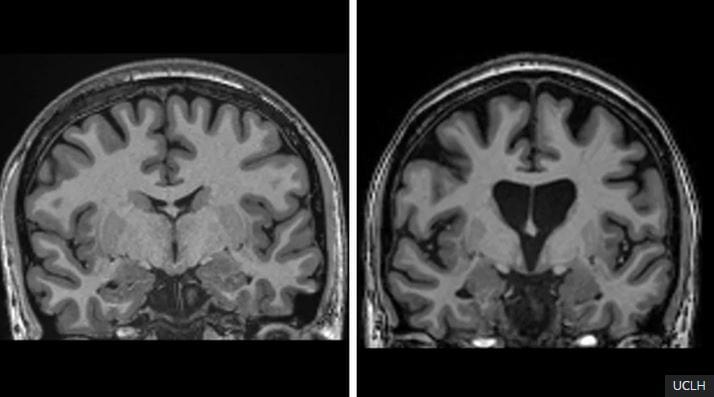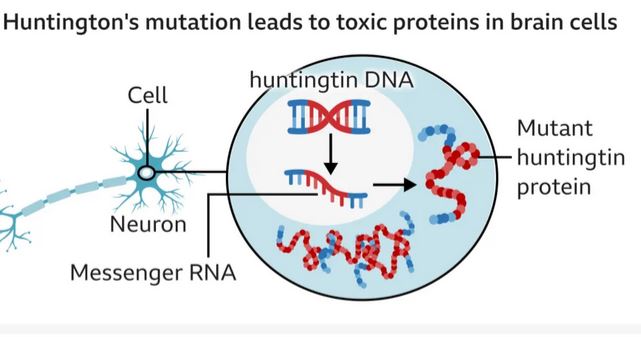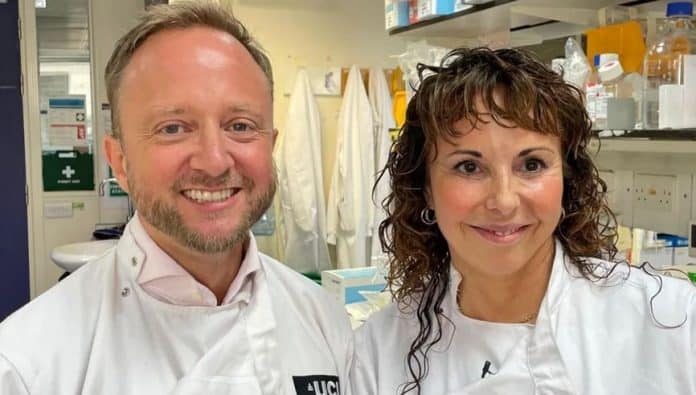Huntington’s disease, a devastating condition that causes the gradual breakdown of nerve cells in the brain, has been successfully treated for the first time.
The inherited disorder runs in families and produces symptoms similar to Parkinson’s, dementia, and motor neurone disease.

Scientists became emotional as they revealed that they were able to slow the disease’s progression by 75% with a new gene treatment.
Professor Sarah Tabrizi, director of the University College London Huntington’s Disease Centre, explained that this means the decline in cognitive function that would normally occur in one year could now take up to four years after treatment – giving patients a much better quality of life.
The breakthrough therapy is a form of gene treatment administered to patients within 12 to 18 hours after brain surgery.
Huntington’s symptoms usually appear in a person’s 30s or 40s, and even with treatment, most patients die within two decades.
Professor Tabrizi described the results as “spectacular,” saying they had “never in [their] wildest dreams expected to see a 75 percent slowing in clinical progression.”
While the patients in the trial remain anonymous, one individual who had been forced into medical retirement has since returned to work.
Others, while still reliant on a wheelchair, are able to walk again.
Although the therapy is expected to be costly, it represents a major breakthrough and a new source of hope for families affected by this devastating disease.

Jack May-Davis, 30, carries the gene that causes Huntington’s disease – a condition that has already affected both his father and grandmother.
He remembers watching his father’s decline and described it as “really horrible and awful.” His father first began showing symptoms in his late 30s, with changes in mobility and behavior.
Over time, he required round-the-clock palliative care before passing away in 2016 at the age of 54.
Jack, who works as a barrister’s clerk, recently got engaged and has now enrolled in a new clinical research trial. For years, he believed his future would inevitably mirror his father’s.
But with the advent of the new gene therapy, he says he feels “overwhelmed” by the possibility of living a longer, more fulfilling life.
About Huntington’s Disease
Huntington’s disease is caused by a mutation in a section of DNA known as the huntingtin gene.

When a parent carries the faulty gene, each child has a 50 percent chance of inheriting it and eventually developing the condition.
The mutation transforms the normal huntingtin protein – essential for healthy function – into a toxic version that destroys brain cells.
The new gene therapy targets this process by permanently lowering the levels of the harmful protein.








